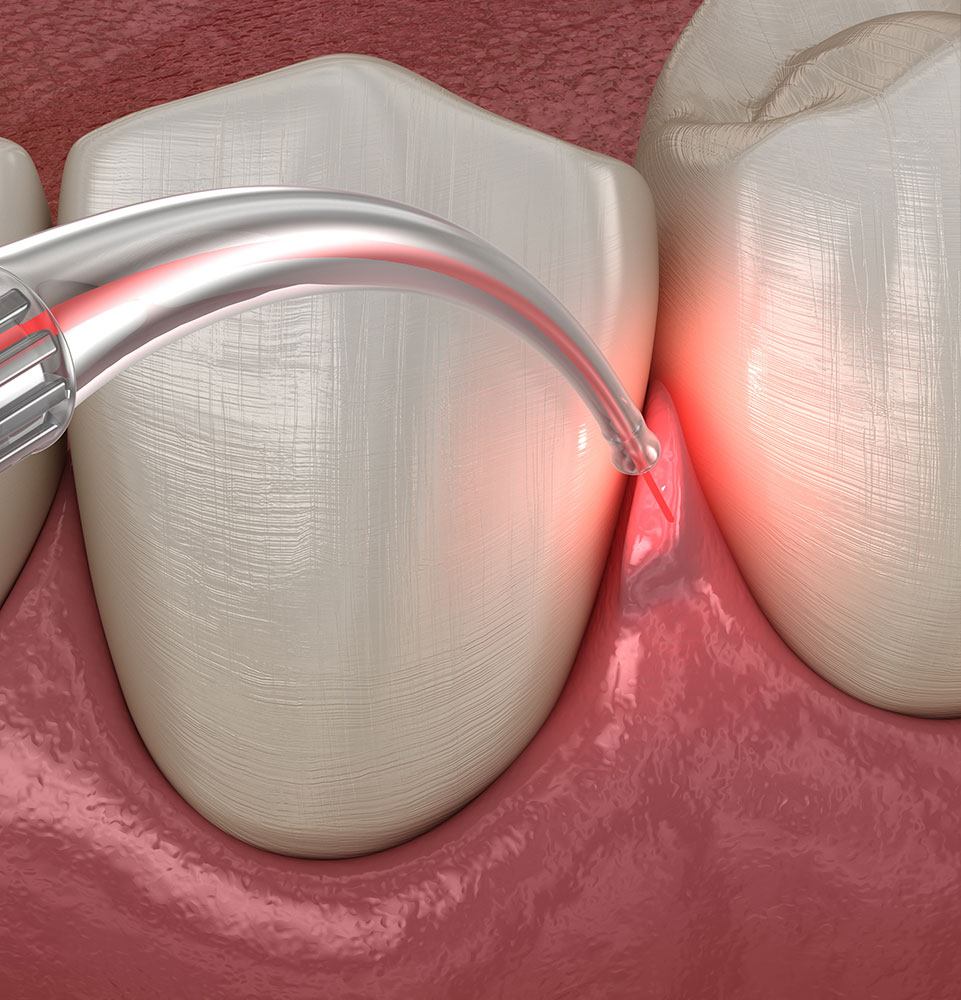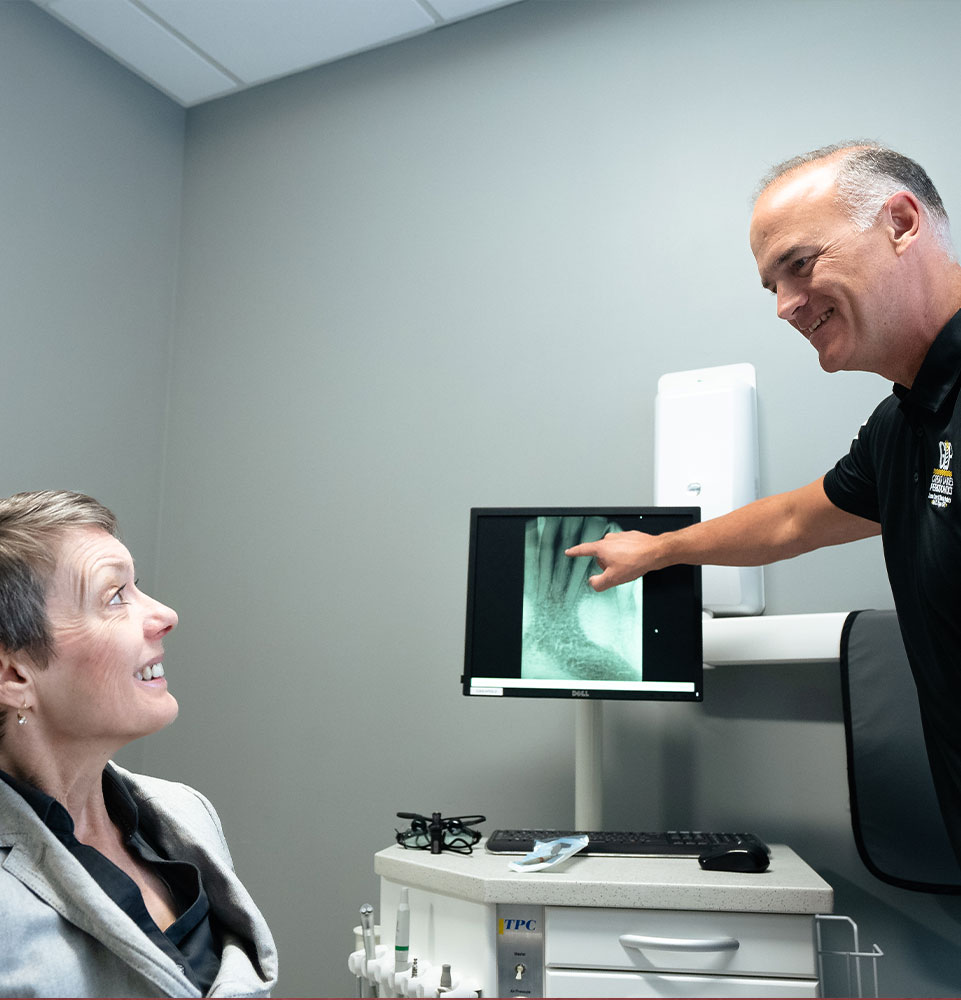Laser Gum Treatment - Grand Rapids & Wyoming, MI
Restore Healthy Gums with
Advanced Techniques

Laser Gum Treatment Offers Gentle Solutions
The foundation of your smile is essential for maintaining overall dental health. Tender or bleeding gums may indicate the early stages of periodontal disease, often caused by plaque buildup and tartar beneath the gum line. If left untreated, gingivitis can progress, leading to tooth and bone loss and systemic health issues.
At Great Lakes Periodontics, Laser Surgery, & Dental Implants in Grand Rapids and Wyoming, MI, we prioritize your oral health with advanced laser gum disease treatments. Our team utilizes precise lasers to effectively repair gum damage, offering a modern alternative to traditional methods. These minimally invasive treatments provide lasting benefits, ensuring you achieve a healthier smile and an improved quality of life.

Signs You May Need Gum Disease Treatment
- Persistent bad breath (halitosis)
- Toothaches
- Loose or shifting teeth
- Tender, inflamed, or bleeding gums
- Receding gums or teeth that look larger than they used to

What Is Laser Gum Therapy?
Historically, advanced gum disease treatment involved invasive surgeries performed over multiple phases, often resulting in lengthy and painful recoveries that discouraged patients from completing their care. However, recent technological advancements now offer superior and more predictable results with minimal discomfort and quicker recovery times.
Laser gum disease treatment employs state-of-the-art FDA-approved laser technology that precisely targets diseased tissue and bacteria without harming healthy cells. This innovative approach promotes efficient healing and regenerating strong, stable periodontal health, ensuring a more comfortable and effective treatment experience.


The Benefits of Surgery-Free Gum Disease Treatment
- Minimally invasive
- Reduced pain and discomfort
- Faster healing
- Limited bleeding and swelling
- Tooth loss risk reduction
- Gum recession prevention
- Targeted treatment
- Comfortable procedure
- Improved gum health
